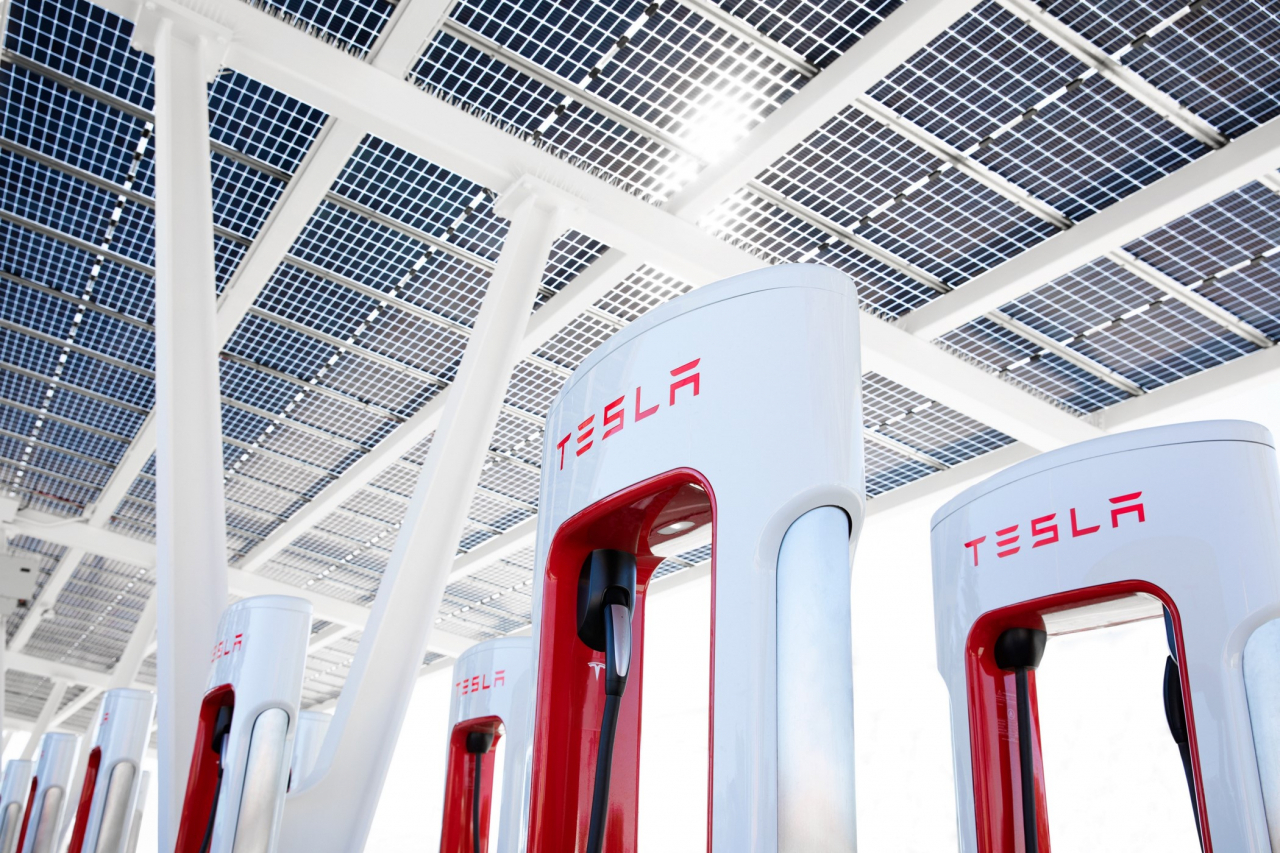Tesla opens Superchargers to rivals in South Korea
By Byun Hye-jinPublished : Nov. 23, 2023 - 15:08

Tesla has begun making its Superchargers in Korea accessible to all non-Tesla electric vehicles, tightening its grip on the mobility charging network on the home turf of Hyundai and Kia.
Starting Wednesday, non-Tesla electric cars can use around 570 of the EV maker’s V3 chargers that can give 261 kilometers of range in approximately 15 minutes at 84 stations. That is around half of the 1,007 Superchargers at 148 stations in Korea.
To use the chargers, drivers should download the Tesla app, subscribe and register their payment option. The charging fee varies depending on the Superchargers.
Once a user presses the connector button on the charger, it allows access to an adapter called “Magic Dock,” which can be plugged into Tesla’s North American Charging Standard or NACS port. The Magic Dock makes Tesla’s NACS ports compatible with Hyundai and Kia vehicles, and others that use the Combined Charging System or CCS in Korea.
“Superchargers boast over 99 percent of an uptime rate, meaning they are highly available and operational because we carry out thorough maintenance and repair on the products,” said a Tesla Korea official, adding that the chargers are subject to constant parts repair and firm and software upgrades through real-time monitoring.
Experts say the No. 1 EV maker’s creeping presence in the charging network in Korea poses a challenge to Hyundai Motor Group, which operates 37 of its own fast-charging stations, E-pit, and provides additional charging services through six other local charging station brands. Hyundai plans to open an additional seven E-pit stations by the end of this year.
“Hyundai and Kia EV owners will be exposed to Tesla’s convenient Supercharger network which could further increase the brand awareness and poach customers from the Korean automaker,” said Kim Pil-su, a car engineering professor at Daelim University.
If Tesla can access other car brands’ EV battery data -- battery performance, charging status and user pattern -- through its battery management system, it can lead the blue ocean market in mobility like the big data platforms, Microsoft and Amazon, Kim added.
Currently, the company only offers battery-related services such as charging alerts and suggesting the nearest route to the Supercharger station through the in-car user interface for Tesla owners.
Aside from Korea, Tesla, which operates 50,000 Superchargers worldwide, has also opened its charging services to non-Tesla EVs in the US and Europe.





![[KH Explains] No more 'Michael' at Kakao Games](http://res.heraldm.com/phpwas/restmb_idxmake.php?idx=644&simg=/content/image/2024/04/28/20240428050183_0.jpg&u=20240428180321)




![[Grace Kao] Hybe vs. Ador: Inspiration, imitation and plagiarism](http://res.heraldm.com/phpwas/restmb_idxmake.php?idx=644&simg=/content/image/2024/04/28/20240428050220_0.jpg&u=)









![[Herald Interview] Xdinary Heroes shoot for the next level with 'Troubleshooting'](http://res.heraldm.com/phpwas/restmb_idxmake.php?idx=642&simg=/content/image/2024/04/29/20240429050745_0.jpg&u=)